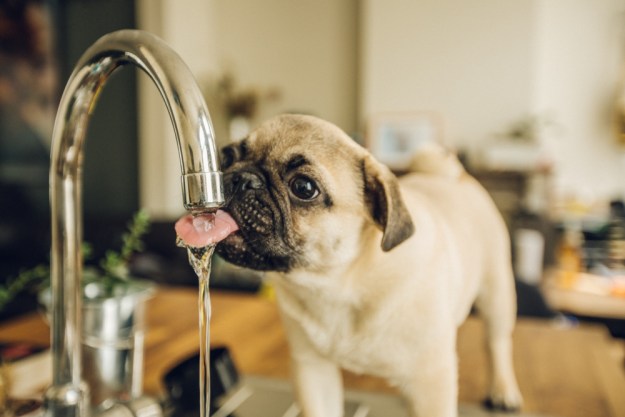Sadly for your pup, she probably doesn't get to consume a lot from your pantry. Most dogs do best with kibble or wet food because it has been perfectly formulated to suit all their dietary and even their dental needs, but a little bit of chicken now and then won't hurt her. It can even work wonders for a sensitive stomach. After all, it's an excellent source of lean protein, omega 6, and glucosamine.
- Here's what you need to know before you feed your dog chicken
- Is chicken good to feed to dogs with sensitive stomachs?
- What is the best way to cook chicken breast for dogs?
- How to boil chicken for dogs
- How else can you cook chicken for dogs?
- What else can I add to my pet's chicken?
- How often should your dog eat chicken?
- How to use chicken as a dog treat for pups with sensitive stomachs
While there are plenty of dog foods that contain chicken-based ingredients (and plenty of nutrients), nothing quite beats the taste of fresh, homemade dog food. That being said, you might be curious about where to start or the right way to prepare fresh chicken correctly (and safely) for your pup. Let’s dive into how to cook chicken for dogs so they enjoy its benefits and delicious flavor.
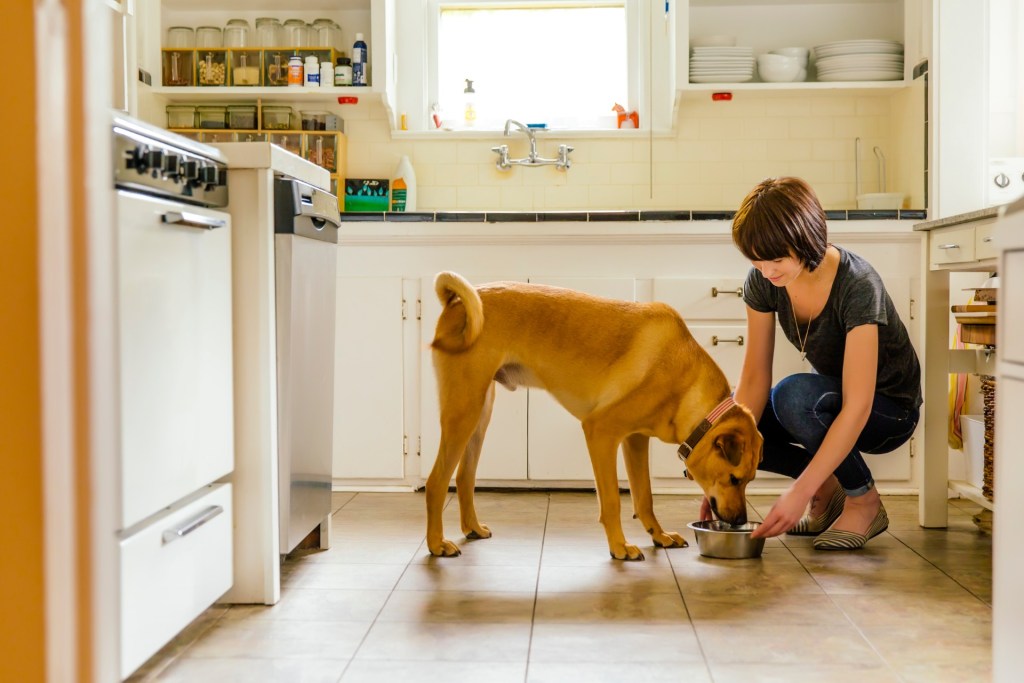
Here's what you need to know before you feed your dog chicken
Although chicken has a reputation for its mild flavor and texture, you may be surprised to know there are some possible risks associated with this meat — especially when serving it to dogs:
- Avoid salmonella or other bacterial infections by cooking chicken thoroughly before feeding it to your dog, or to anyone.
- Plain chicken is best for your pooch. Don’t add any seasoning, onions, or garlic when cooking your dog’s chicken at home. Some of these can even be toxic!
- Chicken is the third most prevalent food allergy for dogs. If you think your furry friend may be suffering from a chicken allergy, remove the ingredient from their diet and contact your vet right away.
- Keep bones out of your dog’s plate. They are a choking hazard and can even puncture your pup’s stomach and intestines.
- Stick to the chicken breast, which is low in fat and healthier for your dog. Fatty foods can lead to pancreatitis in dogs.
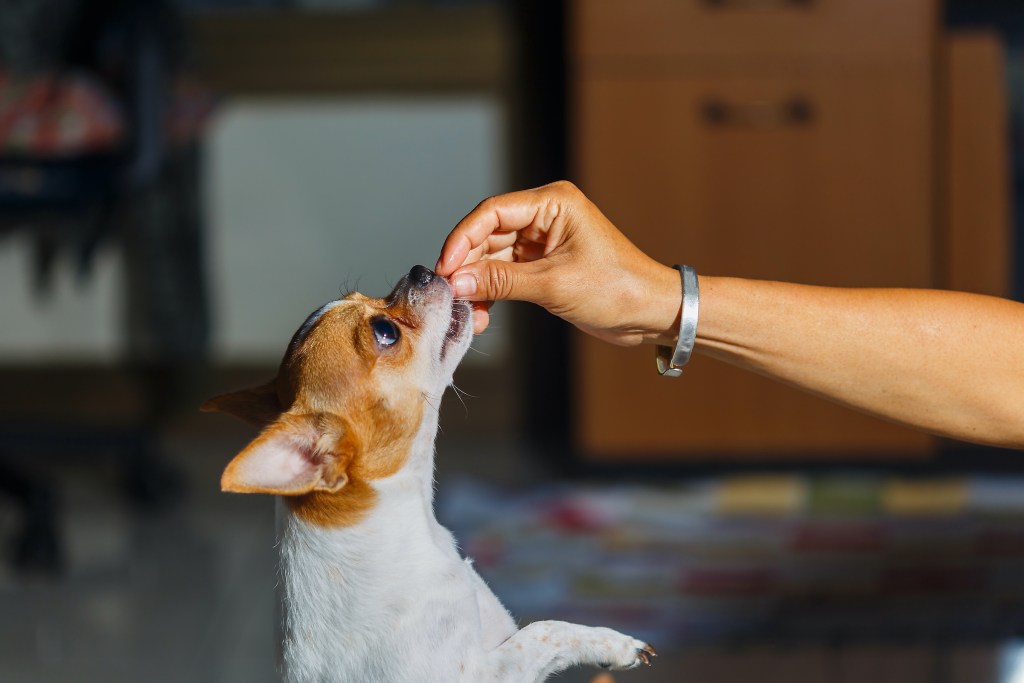
Is chicken good to feed to dogs with sensitive stomachs?
Chicken and rice is a popular recipe that helps dogs who suffer from upset stomachs. Simply prepare white rice without any seasonings and mix it with your dog’s chicken to calm his tummy. Just make sure it's not too hot!
Keep in mind that brown rice is harder for dogs to digest, so white rice is the best way to go. Also, be sure to leave out any onions or garlic — we can't stress this enough. These plants are toxic to dogs and shouldn’t be fed raw, cooked, fried, or powdered.
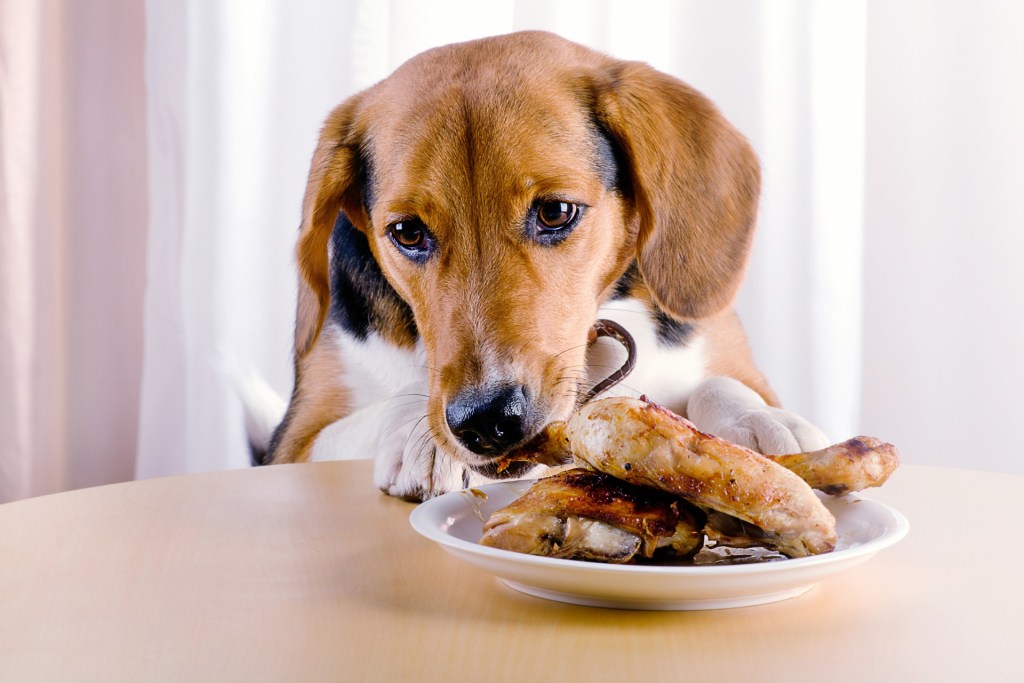
What is the best way to cook chicken breast for dogs?
As mentioned, your goal is to provide a bland diet, which means no seasonings, oil, or salt. Naturally, that limits how you can successfully prepare the meat for your pooch — certainly anything us humans would consider delicious — like fried or glazed chicken — is firmly off the table.
The two most common recommended ways to cook chicken for dogs are boiled or baked. We'll walk you through each so you can switch it up as needed. Or better yet, try both and see which one Fido prefers. You can always dress up the leftovers for yourself!
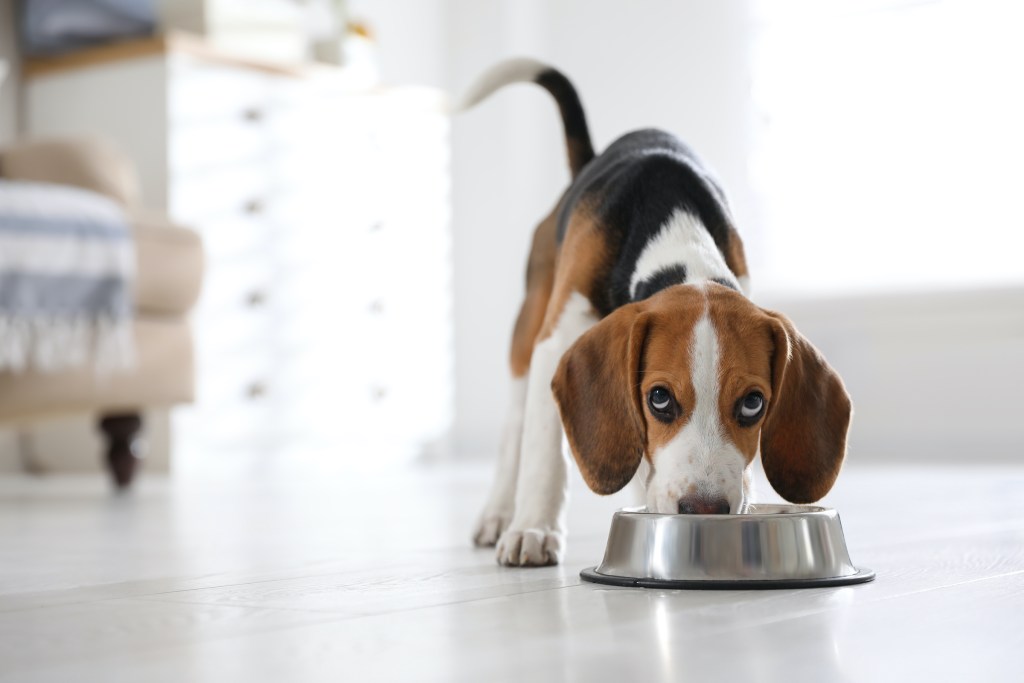
How to boil chicken for dogs
Unlike their pet parents, dogs love plain boiled chicken. Their tummies don’t do well with seasoning and their palates actually prefer the natural flavors of meat (perhaps it brings out their wolfy side).
Here’s an easy step-by-step process for you to whip up a dish that your pup will love.
Step 1: Place chicken breasts in a medium-size pot with water.
Step 2: Cover the pot and bring the water to boil.
Step 3: Boil the chicken for 12 minutes over high heat or until completely cooked. Use a meat thermometer if you're unsure.
Step 4: Shred the cooked chicken and let it cool off to avoid burns.
Step 5: Feed your dog a small portion and store leftovers for up to four days in the fridge.
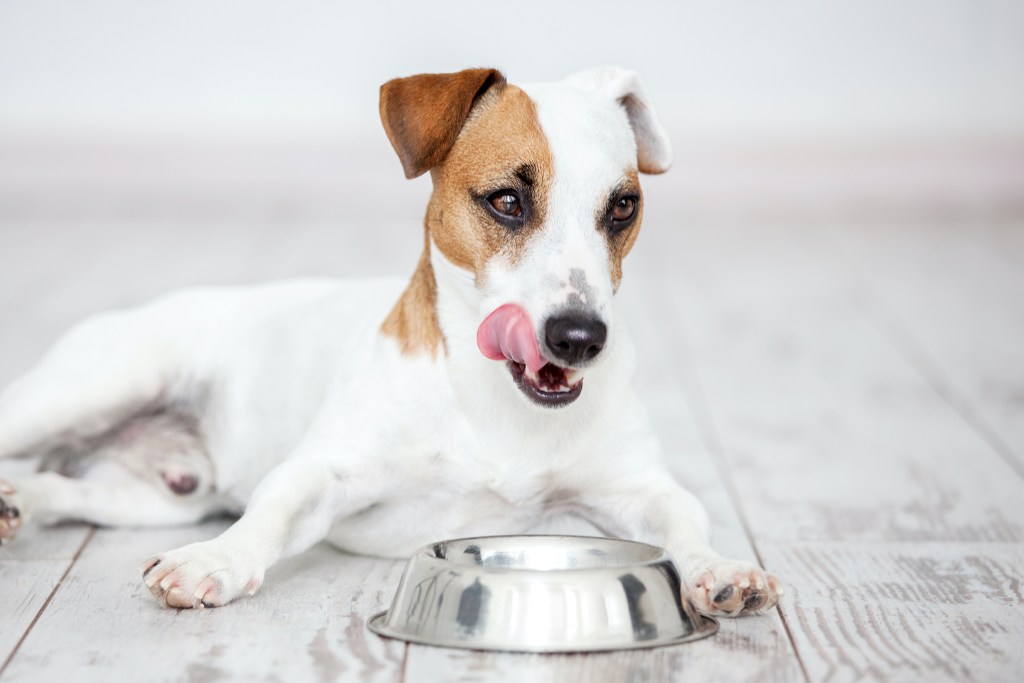
How else can you cook chicken for dogs?
Foodie dog parents may want to get more creative in their pup’s meal prep. If you love the health benefits of chicken but want to change things up for your dog, consider baking his chicken.
Step 1: Preheat your oven to 400 degrees Fahrenheit.
Step 2: Place the chicken in an oven-safe container with a little oil or cooking spray to avoid sticking. Use the bare minimum, please!
Step 3: Cook the meat thoroughly — about 20 to 30 minutes.
Step 4: Shred or dice the meat before serving to your pup.
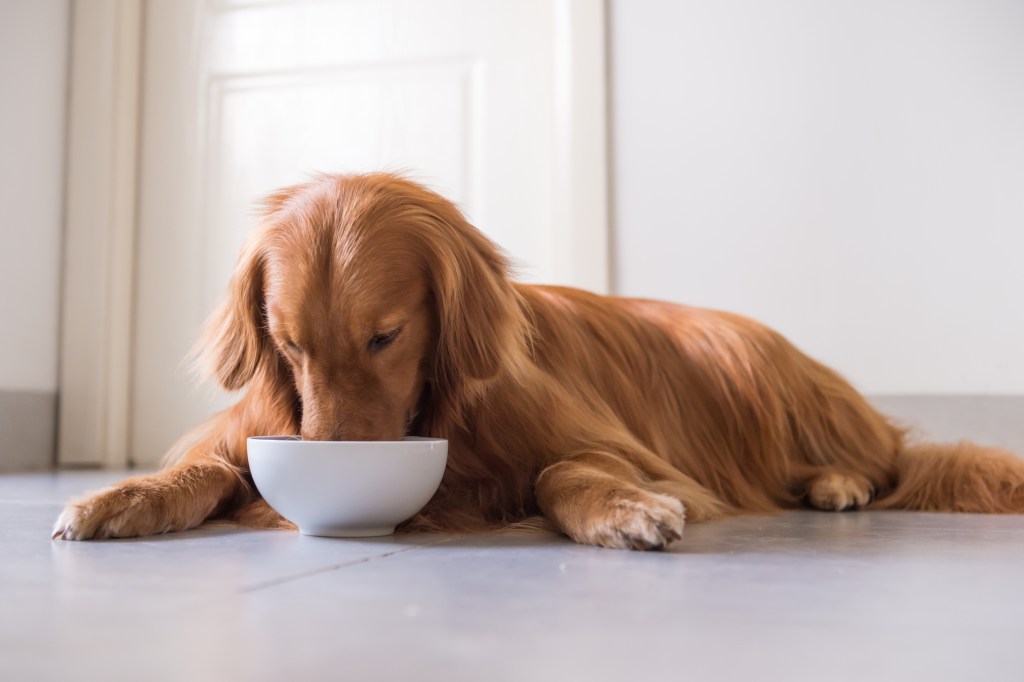
What else can I add to my pet's chicken?
To enhance Fido’s diet, you can add other ingredients — besides plain, white rice — that make meals more filling and nutritional. Here are some ideas:
- Plain yogurt: Use it to boost your dog’s protein and calcium intake.
- Canned pumpkin: This is a great source of vitamin A and helps with digestion.
- Cooked veggies: Green beans, carrots, and broccoli add fiber to your pup’s diet. Just keep it under 10% of their meal to avoid digestive issues.
- Dog food: Mix the fresh chicken with wet or dry food for a tasty treat and extra flavor.
- Vitamin supplements: Sprinkle powdered dog vitamins on your pooch’s meals to make sure they get all the nutrients they need.
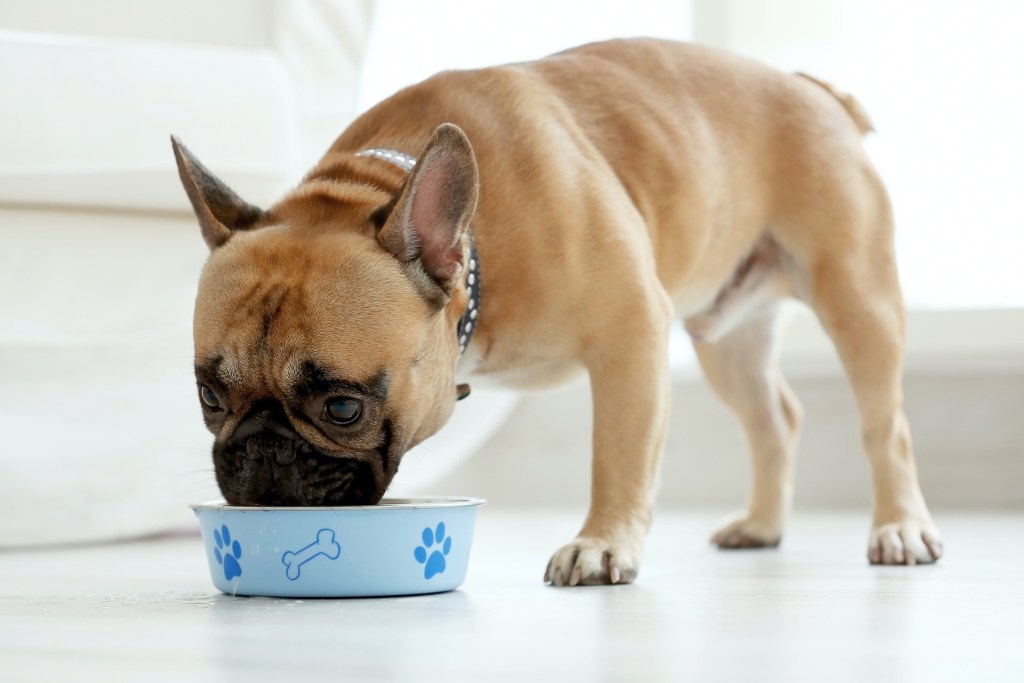
How often should your dog eat chicken?
Chicken breasts are excellent for dogs that need extra protein in their diets, especially if the meal is free of additives, hormones, or other potentially harmful ingredients. If you don’t want your dog to eat chicken exclusively, limit these meals to once or twice per week.
However, there is no harm in using chicken as your dog's main protein source either. As always, it's best to get your veterinarian's recommendation before making significant changes to your dog's diet.
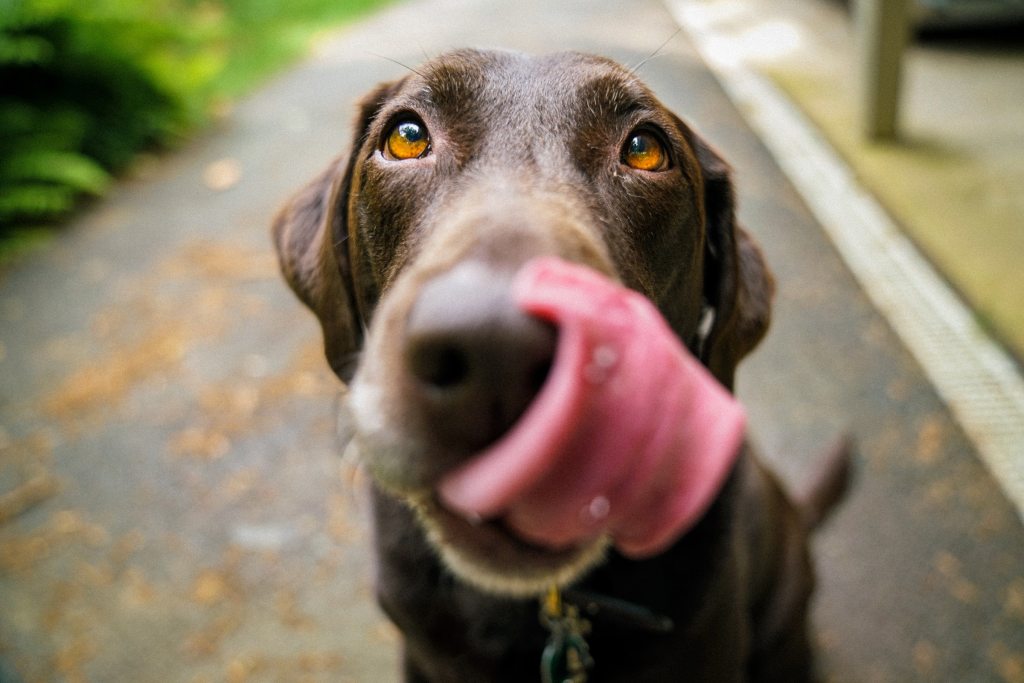
How to use chicken as a dog treat for pups with sensitive stomachs
Whether your dog simply prefers the taste of chicken or their dietary needs are leaving you in search of a blander dog treat, there are several ways you can use this lean meat to create a bite-sized morsel. The simplest method, of course, is to dice or shred cooked chicken in advance, and feed it to your dog bite by bite instead of tossing them treats.
The AKC's mini omelet recipe is a great, fun alternative to feeding your dog plain chicken for a treat. You'll need 2 eggs, 1/2 of a green bell pepper, and a 1/2 cup of shredded chicken. If you know how to make an omelet, you know how to make these treats! Once cooked, you can cut up the omelets and feed to your dog in small servings.
If you want to prepare a batch of treats that will last a while, try freezing shredded chicken for a cold, meaty treat. You'll need 2 cups of shredded chicken, 1 chopped up carrot, 3/4 a cup of plain yogurt, and 3 tablespoons of extra virgin olive oil. Simply mix, pour into ice cube molds, and freeze!
Just remember to consult with your dog’s vet before making any drastic changes to their diet, especially if you’re concerned about stomach issues or the nutritional balance. If you’re cooking chicken for your dog as opposed to feeding them dry dog food, they will be just as thrilled as you are to be treated to such a nutritious, delicious meal. In their eyes, you’ll definitely be pet parent of the year!
Editors' Recommendations
- How many dog breeds are there, really?
- Can dogs eat strawberries? Everything you need to know
- How to find the right veterinarian for your pet
- Can dogs eat shrimp? The answer may surprise you
- The best oversized dog beds your pup will love
